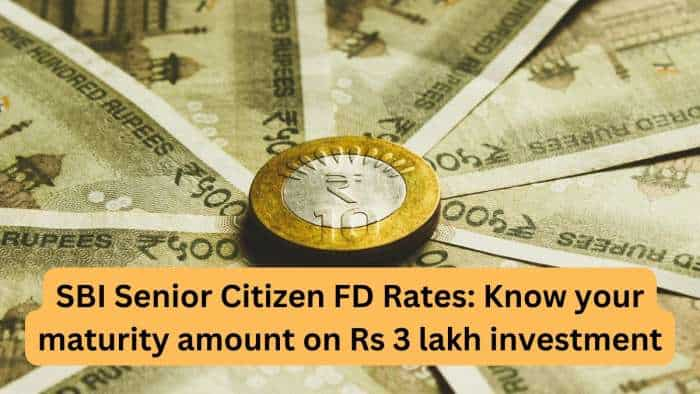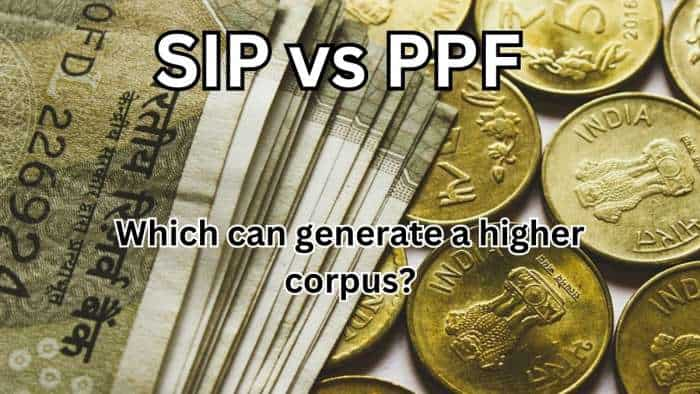RBI to enhance VRR cap for foreign investors to Rs 2.50 lakh crore from April 1
Foreign Portfolio Investors (FPIs) will have their voluntary retention route (VRR) cap raised by Rs 1 lakh crore to Rs 2.50 lakh crore, given the increased interest shown by them, Reserve Bank of India Governor Shaktikanta Das announced on Thursday.

Foreign Portfolio Investors (FPIs) will have their voluntary retention route (VRR) cap raised by Rs 1 lakh crore to Rs 2.50 lakh crore, given the increased interest shown by them, Reserve Bank of India Governor Shaktikanta Das announced on Thursday.
The announcement was made during the Monetary Policy announcements today after the conclusion of the three-day Monetary Policy Committee (MPC) meeeting that commenced on 8 February.
According to Das, on April 1, VRR will be revised to provide a separate channel, free of macroprudential controls, for FPI investments in government and corporate debt securities.
An investment limit of Rs 1,50,000 crore was earlier set for VRR investments.
The enhancement is being done “given the positive response to the VRR as evident from the near exhaustion of the current limit”, Das noted.
Benefit for corporates looking for debt funding
Suvodeep Rakshit, Senior Economist at Kotak Institutional Equities, said, “The FPI investment under the VRR scheme would help FPI invest in the corporate debt and high yield segment (along with GSecs). This should provide a benefit for corporates looking for debt funding and beneficial at the margin for long-term investments/capacity expansion. However, flows would depend on the global monetary and liquidity cycle too.”
FPIs flows are likely to remain muted
Anil Gupta, Vice President & Co-Group Head at ICRA said, "The enhancement of VRR limits for investments by foreign portfolio investors by Rs. 1.0 trillion to Rs. 2.5 trillion is a positive move, as the prevailing VRR limits are nearly exhausted, even as the overall FPI investments in Government securities and Corporate bonds have been on a declining trend over the past few years. While this enhancement in limits may pull in some additional funds amidst the rise in planned government borrowings, overall FPIs flows are likely to remain muted in the near term, given the concerns on India's fiscal deficit as well as rising rates in developed economies."
High operational flexibility
Ravi Singh, VP & Head of Research at Shareindia, said, "VRR is a potential source of bringing in foreign money into local debt securities. VRR, unlike normal debt purchases, has certainty on flows, with global investors scouting for higher yields unavailable in the developed economies. A further increase in the limits in VRR can help prevent sudden shocks in the form of significant outflows as it offers higher operational flexibility against the commitment of a minimum holding period and is seen as mitigating the risk of rupee volatility."
Furthermore, the move comes at the same time when the hardening of rates in developed markets is increasing investor interest in emerging markets.
Governor Das also announced that India will be issuing revised guidelines on credit default swaps (CDS) nearly nine years after the guidelines first appeared.
The CDS market is important for the development of a liquid market for corporate bonds, especially for the bonds of lower-rated issuers, he said.
According to Governor Das, the first review of CDS guidelines was announced in December 2000 and the draft guidelines were released a year later because of the market's importance following the 2008 global financial crisis.
The final directions will take into account the feedback received on the draft guidelines.
When was VRR introduced?
VRR was introduced in March 2019, by the Reserve Bank of India as a separate channel to enable FPIs to invest in debt markets in India when Indian Rupee was depreciating against the US Dollars.
What is VRR?
The Reserve Bank of India (RBI) introduced the Voluntary Retention Route (VRR) to assist foreign portfolio investors (FPIs) in investing in India's debt markets. These investments are exempt from macro-prudential and other regulatory prescriptions that apply to FPI investments in the debt markets. FPIs will have to commit to retaining a minimum percentage of their investments in India for a period of their choosing.
Get Latest Business News, Stock Market Updates and Videos; Check your tax outgo through Income Tax Calculator and save money through our Personal Finance coverage. Check Business Breaking News Live on Zee Business Twitter and Facebook. Subscribe on YouTube.
RECOMMENDED STORIES

SBI Senior Citizen FD Rates: Want to invest Rs 3,00,000 in SBI FD? You can get this much maturity amount in 1 year, 3 years, and 5 years

EPS Pension Calculation: Rs 40,000 basic salary, 30 years of service, what will be your monthly EPS pension amount?

Retirement Planning: How one-time investment of Rs 11,00,000 can create a Rs 3,30,00,000 retirement corpus
04:40 PM IST









 FIR against New India Cooperative Bank GM in Rs 122 crore financial fraud
FIR against New India Cooperative Bank GM in Rs 122 crore financial fraud Sebi allows stock brokers to participate in government securities market via separate business unit
Sebi allows stock brokers to participate in government securities market via separate business unit  India's forex reserves rise for 2nd consecutive week, gold reserves up
India's forex reserves rise for 2nd consecutive week, gold reserves up Credit growth moderates in personal loan segment in December: RBI data
Credit growth moderates in personal loan segment in December: RBI data Digital payments rise 11.1% at September-end 2024: RBI data
Digital payments rise 11.1% at September-end 2024: RBI data